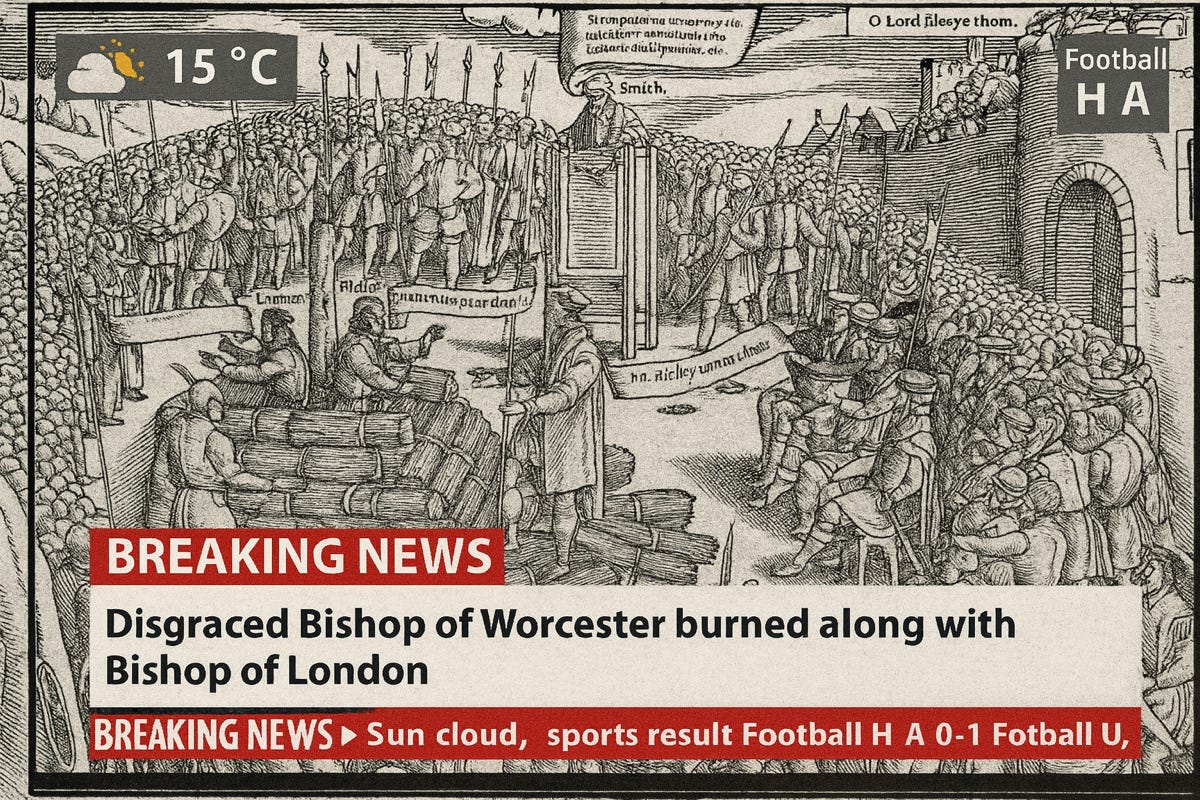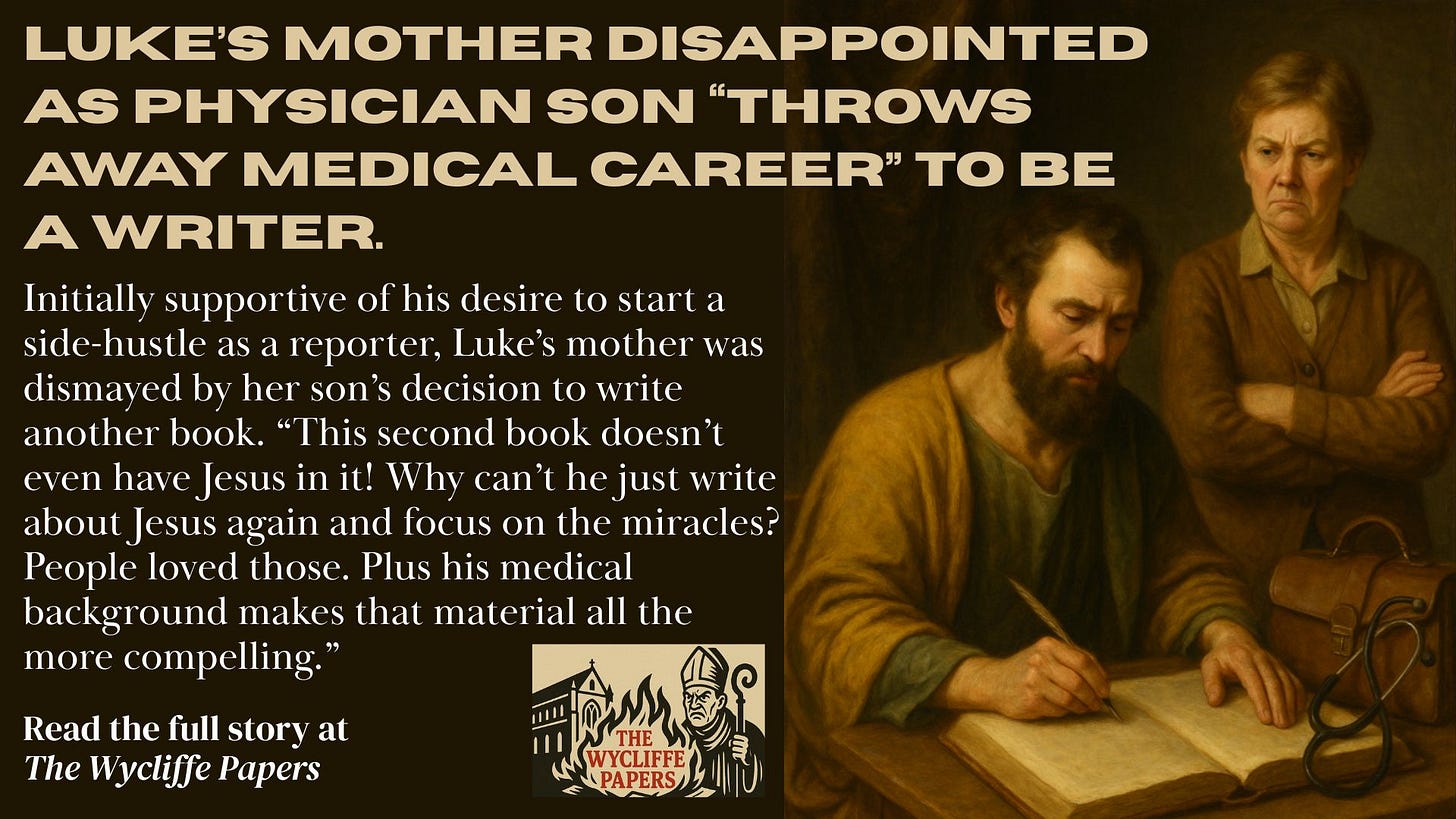Do we really need a Christian calendar? What is to be gained from harking back to the saints of the past when life was completely different? In today’s post, I’d like to look at how these Christians from the past help us deal with the system shocks that we live with today. And many have been deeply shocked by the recent killing of Charlie Kirk.
This rocked not just America but many here in England, just as our nation was shaken by one of the defining moments of the 20th century: the assassination of JFK. Many people alive in November 1963 can still remember where they were when they heard that the president had been shot.
The shooting of Martin Luther King and later, musician-turned-peace-activist, John Lennon, were also truly shocking events. In my own lifetime, the greatest outpouring of emotion I ever witnessed followed the dramatic death of Princess Diana in the UK. Technically not an assassination, the nation was stunned and then overcome with a deep sense of anger at the people who had caused the terrible high-speed car accident in Paris. Why are these public deaths so shocking to us?
At first glance, it is obvious. The person is famous, either through being an elected politician or a famous speaker, musician or influencer. We were not expecting them to die and they had not had their “three-score years and ten”.
But after this initial distress at the news, other shock waves follow. There is an overwhelming sense of loss. Not only are they gone, the person’s life and work has been cut short. Charlie Kirk was only 31. He could have been President, we were told. JFK, already America’s youngest President had only been in office for less than three years. He could have remained in the White House for another five, if re-elected. John Lennon’s death meant he would never reunite with McCartney and write more astonishing songs. Martin Luther King would never preach another sermon. Princess Diana’s reign as the Queen of Hearts, as she was later known, had come to a sudden end.
After another shock wave of sympathy for a spouse or children left behind, there comes another sensation: a burning sense of injustice. This person’s life has been snuffed out by one individual with a rifle – or, in the case of Diana, a driver trying to get away from the paparazzi. How is that fair? How can that happen? How can one person rob us in this way? How is it that they are so motivated by hate that they lie in wait and take their shot? How is it that we live in a world where this is allowed to happen?
Indignant questions follow: why isn’t everyone else as upset and angry as I am? Why are some people smirking, or trying to make philosophical comments about the person’s life? Within seconds of the deadly disaster, we’re all furious with everyone.
What’s going on? I think it’s something deeper about violence and death. It encompasses the deep rage experienced by many people in England when Russia invaded Ukraine. Within days, many church towers with flagpoles were resplendent with the blue and yellow flag. Where did these flags come from? Ukraine is not a country that English people had really been thinking about, and yet many people seemed furious even though, to borrow from Chamberlain’s famous speech about the Sudetenland in 1938, this is “a quarrel in a far-away country between people of whom we know nothing.”
But the fact that this invasion was taking place in Europe deeply wounded us. Why do countries still think they can just walk into other countries? We’ve been through this in 1914. And 1939. It’s 2025, for heaven’s sake!
The Year is Not an Argument
Quoting the year is not an argument. What people mean when they do that is this: haven’t we moved on from this way of thinking? Why are we still killing each other in this barbaric fashion? We’re better than this.
I’m sorry to be the one to break this to you: we’re not. We’re really not.
We can find evidence in the Christian calendar, which I write about every week here at Cary’s Almanac. I look into the people behind the feast days, high days and holidays in the Church year. People like St Andrew, Anselm, Aquinas and Augustine (both of them). Why do that? What’s to be gained from such a nostalgic exercise?
Here's why: it gives us a sense of perspective, helping us to be less shocked by current events and the disappointing, unchanging nature of humanity. Let’s take another A from the Almanac: Alban. He is the first recorded Christian martyr in England, beheaded after he bravely offered himself to Roman soldiers in place of a Christian priest he had sheltered. Declaring himself a Christian, he refused to renounce his faith despite threats of torture and death. This all happened in a place now called St Alban’s.
Alban is one of dozens of Christians, also known as saints, remembered and celebrated by the Church of England for being killed for their faith. Often, we don’t even realise that is what we are doing. At Christmas, when you sing about Good King Wenceslas looking out “on the feast of Stephen,” you are remembering Stephen, the very first Christian martyr who died for the faith in Acts chapter 7. We’re not really paying attention because the day is also called Boxing Day in England, a fug of carb-loaded torpor broken with a brisk walk and some online bargain hunting.
Many Anglican churches bear the names of martyrs: St Peter, crucified upside down; St Lawrence, roasted alive. The church building itself often takes the shape of a cross, the place of Christ’s own agonising death. We don’t just remember their teaching. We often commemorate the manner of their dying.
The Legacy of Latimer
For example, not chosen at random, Bishop Hugh Latimer died on 16th October 1555. He did not leave behind theological works or an institution. He preached sermons, some of which were recorded. I’ve been reading them and, to be honest, they simply do not have the same resonance today. You had to be there. At the time, they were electrifying. Plain, poignant and passionate. Latimer was a key voice in the English Reformation, preaching at St Paul’s Cross in the heart of London in the early years of the short reign of Edward VI.
Why is Bishop Hugh Latimer remembered? For his sermons? Not really. For the manner of his death. Latimer, the former Bishop of Worcester, was burned outside Balliol College, Oxford in 1555. He went to the flames with eminent theologian, Nicholas Ridley, the former Bishop of London. On his way to the flames, he even made a joke about lighting candles. Bishop Latimer knew what he was dying for. His death, recorded in Foxe’s Acts and Monuments, arguably meant more than all his famous sermons.
Far from being puzzled by death, especially that which is public and violent in nature, the Church calendar helps us make sense of it and create a space for it. We need not be utterly blindsided by it. We look at the examples of those who have gone before us and they, in turn, ask questions of us: what are we living for? And for what – or for whom – are we prepared to die? Is there any question more important than that?
This is why I am making a video about Bishop Hugh Latimer, to be released on 16th October. I can’t wait to share it with you (once I’ve filmed it). If you want to support me as I do things like that, why not subscribe to The Wycliffe Papers and become a Loyal Lollard (a paid subscriber) which comes with a whole range of other benefits.
Check out The Wycliffe Papers full of jokes for those serious about the Bible and Church History:





Here's a fun fact for you, most of the dormitories in my boarding house in Canterbury were named after Archbishops of Canterbury (Becket, Carey, Runcorn). Being Canterbury, a lot of other places were named after people - Anselm, Augustine etc but I know very little about most of them, I'm enjoying picking up bits here, so thanks